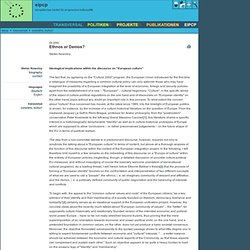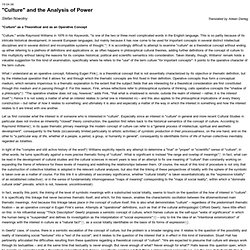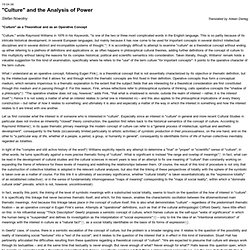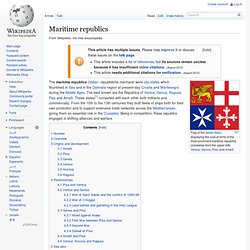

Grasping The Changing World: Anthropological Concepts in the Postmodern Era - V. Hubinger. Matteo Pasquinelli - Publications. Credo Reference Find a Book. Religion from Cambridge Dictionary of Sociology. Stefan Nowotny: Ethnos or Demos? Ideological implications within the discourse on "European culture" The fact that, by agreeing on the "Culture 2000" program, the European Union introduced for the first time a catalogue of measures regarding a common cultural policy can only astonish those who may have imagined the possibility of a European integration at the level of economic, foreign and security policies apart from the establishment of a new – "European" – cultural hegemony.

"Culture", in the specific sense of the object of culture-political regulations on the one hand and of discourses on "European identity" on the other hand, plays without any doubt an important role in this process. The step from a non-committal debate to a predominant discourse, however, requires not only to scrutinize the talking about a "European culture" in terms of content, but above all a thorough analysis of the function of this discourse within the context of the European integration project. Thus, what is a "European State"?
[1] Cf.. "Culture" and the Analysis of Power. Translated by Aileen Derieg Stefan Nowotny "Culture" as a Theoretical and as an Operative Concept "Culture," wrote Raymond Williams in 1976 in his Keywords, "is one of the two or three most complicated words in the English language.

This is so partly because of its intricate historical development, in several European languages, but mainly because it has now come to be used for important concepts in several distinct intellectual disciplines and in several distinct and incompatible systems of thought. " It is accordingly difficult to attempt to examine "culture" as a theoretical concept without ending up either referring to a plethora of definitions and applications or, as often happens in philosophical cultural theories, adding further definitions of the concept of culture to this multiplicity without taking the reasons for its complex historical, political and scientific semantics into consideration. Let us first consider what the interest is of someone who is interested in "culture". Advanced Search. "Culture" and the Analysis of Power. Translated by Aileen Derieg Stefan Nowotny "Culture" as a Theoretical and as an Operative Concept "Culture," wrote Raymond Williams in 1976 in his Keywords, "is one of the two or three most complicated words in the English language.

This is so partly because of its intricate historical development, in several European languages, but mainly because it has now come to be used for important concepts in several distinct intellectual disciplines and in several distinct and incompatible systems of thought. " It is accordingly difficult to attempt to examine "culture" as a theoretical concept without ending up either referring to a plethora of definitions and applications or, as often happens in philosophical cultural theories, adding further definitions of the concept of culture to this multiplicity without taking the reasons for its complex historical, political and scientific semantics into consideration.
Let us first consider what the interest is of someone who is interested in "culture". Maritime republics. The maritime republics (Italian: repubbliche marinare) were city-states which flourished in Italy and in the Dalmatia region of present-day Croatia and Montenegro during the Middle Ages.

The best known are the Republics of Venice, Genoa, Ragusa, Pisa and Amalfi. These states[1] competed with each other both militarily and commercially. From the 10th to the 13th centuries they built fleets of ships both for their own protection and to support extensive trade networks across the Mediterranean, giving them an essential role in the Crusades. Being in competition, these republics engaged in shifting alliances and warfare. Number[edit] Map of the maritime republics in the 11th century and their coats of arms. The best known maritime republics in Italy are Amalfi, Pisa, Genoa and Venice; less well known are Gaeta,[2] Ancona,[3] Noli[4] and on the eastern coast of the Adriatic, in Dalmatia, there was the important Republic of Ragusa,[5] centered on the city of Ragusa (now Dubrovnik, Croatia).